READY TO GET STARTED?
REQUEST A FREE ESTIMATE
Fill out the form below or call (888) 466-7849 for a free, no-obligation estimate.
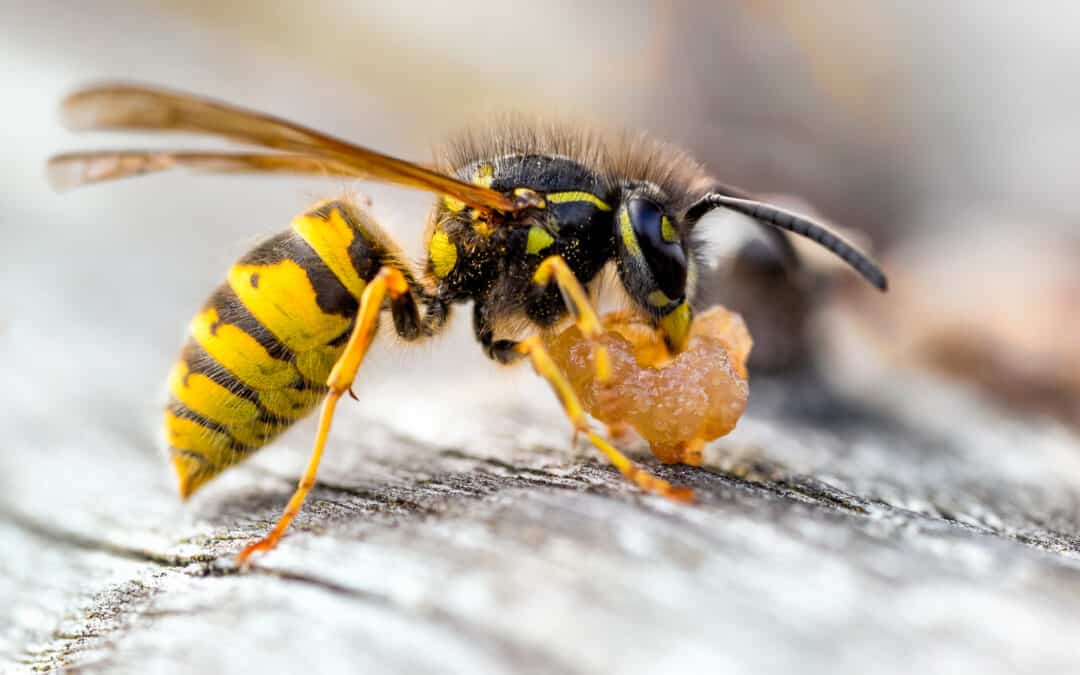
As we gear up for spring, most homeowners are looking forward to spending time with family in their yards. Unfortunately, spring pests will also emerge as the weather warms up. While spotting one near your home is not a big deal, if they’ve infested in large numbers, they can quickly become a nuisance and cause property damage. Check out our list of common spring pests and how you can avoid them.
In Alabama, termite activity increases in early spring. These pests can cause severe property damage by destroying the structural integrity of your home. Once termites infest your home, it can be extremely difficult to eliminate them, and their repair often costs billions of dollars. Common termite types include subterranean and drywood termites. Drywood termites will inhabit sound wood and will infest wood furniture. Subterranean termites need soil to live, creating mud tubes for a food source above the surface and invading the foundations of homes.
Ants thrive in humid, hot weather. During the spring, ants are looking for any food source for their nests, often invading our homes to find it. These pests can be extremely persistent and take over our yards. Common ant species found in the Alabama area include fire ants, pavement ants, crazy ants, and more. You can often find these ants near their food sources, behind window frames, under appliances, in the bathroom, and the kitchen.
Wasps are common during the springtime and can become a problem when they have nested on your property. There are several wasp types common to the Alabama area, including the blue-winged wasp, cuckoo wasp, spider wasp, paper wasp, and more. Depending on the type of wasp, you can find their nests underground or hanging from branches, eaves, door frames, railings, and more. While not always aggressive towards humans, wasps will attack if their nest is disturbed. If stung, it can be extremely painful and will sometimes need medical attention, depending on the severity.
Alabama’s weather during the spring months is hot and humid, making it the ideal environment for mosquitoes to breed. Mosquitoes only need a small amount of water to lay their eggs, and if found on your property, you will soon have a full-blown blown mosquito infestation. Mosquitoes can not only be a major nuisance if they invade your yard, but they also pose a health risk to humans, dogs, cats, and horses by transmitting diseases. Mosquitoes need a blood meal to survive, often looking at us and our pets to get it. If they feed off a diseased host, they can spread pathogens that can infest other hosts they bite later.
Being on top of pest prevention is one of the best ways to keep spring pests from invading your yard. Consider the following do-it-yourself preventative measures for keeping pests away:
Don’t let these common spring pests invade your home! If you notice an increase in pest activity or want to get ahead of prevention, consider contacting your local pest control company which can help identify entry points and pests, recommend a treatment plan, and prevent them in the future.
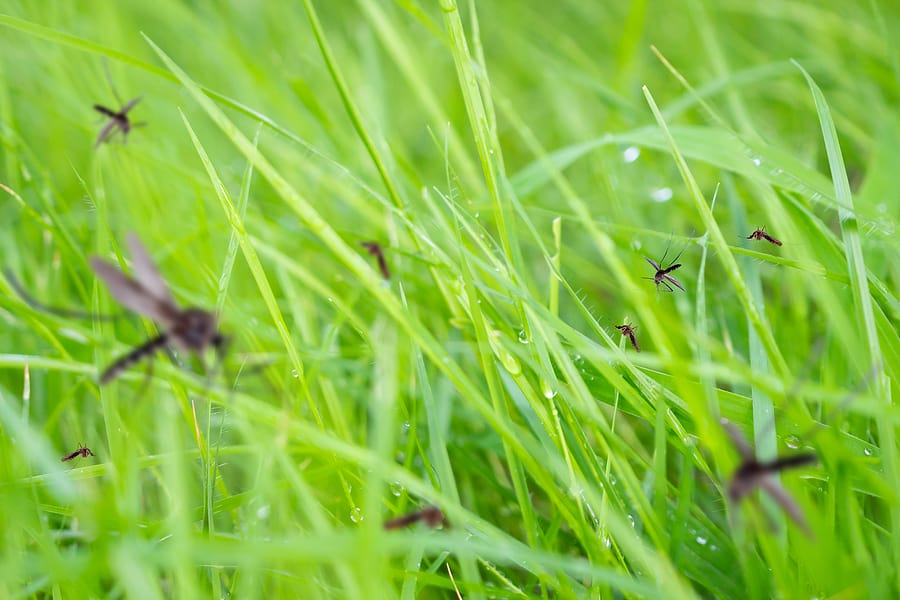
Florida springtime is a beautiful time of year, with warm weather and blooming flowers. Unfortunately, with warmer temperatures comes an increase in pest activity. Check out our list of common spring pests in Florida and how you can prevent them from invading your yard.
Ants are extremely small and are known to enter our homes through the smallest hole or opening. These pests are attracted to our food and water sources and can quickly become a problem if they invade in numbers. To prevent ants from coming to your home, it’s essential to keep it clean and free of crumbs and spills. After each meal, wipe down your counters, sweep up crumbs, and take the trash out regularly. Likewise, inspect the outside of your home and seal any cracks or openings in your foundation to prevent these spring pests from entering.
Termites, including drywood and subterranean, can cause significant damage to your home’s structure. These pests will typically swarm in the spring, so it’s important to keep an eye out for signs of infestation, such as discarded wings near windows or mud tubes near your home’s foundation. To keep termites from destroying your home, place all woodpiles and other wooden materials at least 20 feet away from your home. For extra protection, consider elevating the wood from the ground.
Florida’s weather is known for its humidity, high temperatures, and rain, which is the perfect environment for mosquitoes. These pests can be a major nuisance if they invade in numbers, especially during the spring and summer months. Mosquitoes breed in standing water, so it’s important to eliminate them around your home. Remove water from items such as flowerpots, old tires, pet bowls, and even bird baths. Likewise, these pests prefer to inhabit areas near shade. Make sure to keep your yard maintained by trimming shrubs and mowing your lawn frequently.
Like mosquitoes, roaches also thrive in warm and humid environments. These pests are looking for food and water to survive, invading our kitchens and bathrooms to look for it. To keep cockroaches at bay, keep your home clean and free of clutter. Clean up leftover food crumbs, mop on a regular basis, remove old newspapers, etc. Likewise, seal any openings in your home’s foundation, and store food in airtight containers. Inspect your bathroom and kitchen for any leaky faucets and repair them immediately.
Bed bugs are known to be year-round pests, but their peak activity is in the spring and summer months. These pests are typically found in hotels or other areas with high foot traffic or human activity. To prevent these hitchhiking pests, before you stay in a hotel room, inspect it thoroughly. Look for signs of infestation, such as blood stains on sheets or mattress seams. After returning from traveling, inspect your luggage and clothing for any signs of bed bugs before bringing them into your home. Wash your clothes in hot water and dry them in high heat, as bed bugs cannot withstand high temperatures.
Coming across these spring pests in South Florida can be inevitable but placing a few preventative measures throughout your home can help deter them away. If you notice more pests in your house than you can handle, consider contacting your local pest control company for support. These trained professionals can help identify the pest, provide a prevention plan, and treat areas where needed.
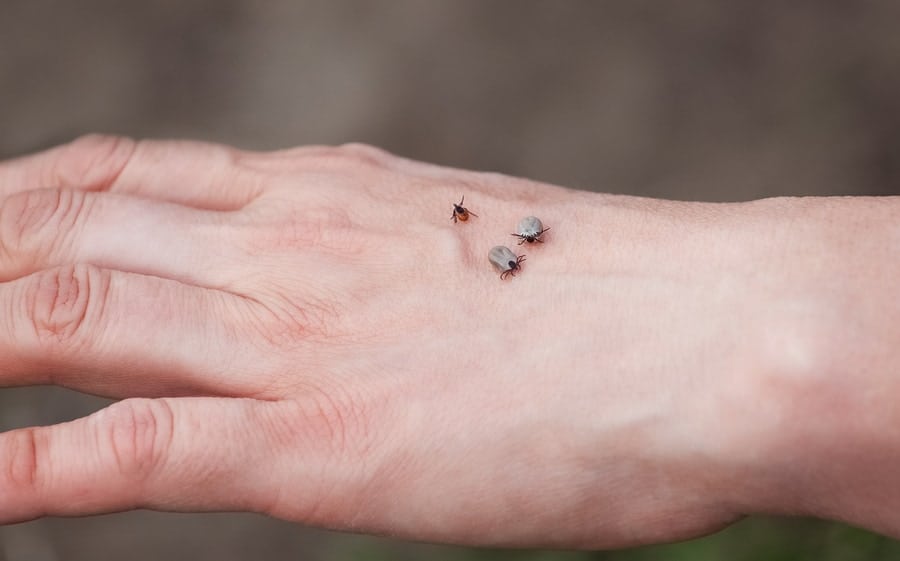
A household pest is any undesired animal that has a history of living, invading, causing damage to, eating food from, acting as a disease vector for, or causing any other harm to a human habitat. While most are considered a nuisance, household pests become dangerous when they pose a risk to health, property, or lifestyle.
While they can be common year-round, some are common in the spring months. Here are a few common spring pests you can find in your Georgia home:
Termite swarming season begins in the springtime. Swarming season is when young termites leave their current colony and go off to find mates and establish new colonies. If you begin to see swarmers, it might mean a colony is nearby.
Ticks are problematic to humans and pets because they spread diseases like Lyme disease and Rocky Mountain spotted fever. You might begin to see an increase of tick bites in the springtime. The mild winters in Georgia don’t help with keeping ticks away for long, so you should always be aware of ticks at any time of the year.
With heavy rainfall in the early spring, you can expect to see ants finding their way inside your home. They will begin to search for food and water, which your home has plenty of.
These pesky pests will find their way inside once the weather begins to warm up. They can spread many pathogens by picking them up on their feet when landing on different items.
If you’re ready to begin prevention of these spring pests, reach out to your local pest control company to receive a free quote and the best plan of action to keep pests away!
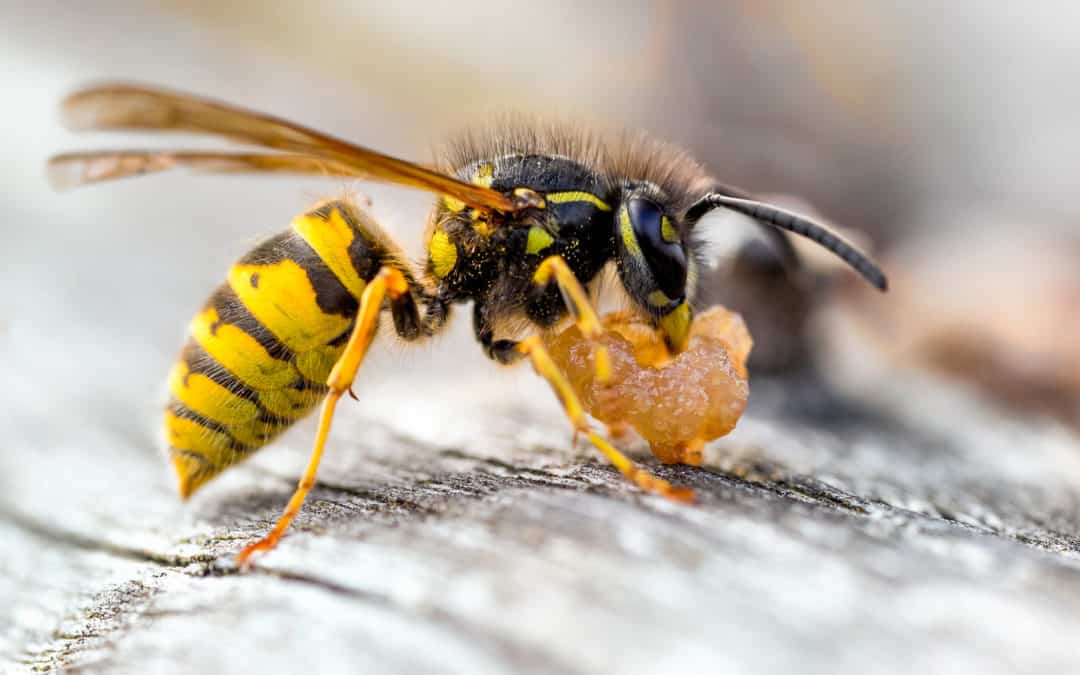
An encounter with a stinging pest can always be alarming, as they are known to have a painful sting. Since stinging pests are most active during the spring and summer, it’s important to know the most commons ones to look out for and how you can protect yourself and your family.
Social in nature, the yellowjacket can live in nests or colonies containing anywhere from 1,000 to 4,000 workers. Yellowjackets tend to build their nests on trees, buildings, and in the ground. Unlike bees, these insects have smooth stingers where they can sting several times if they start to feel threatened, which can be severely painful. These insects are highly attracted to sweet foods and proteins. If you plan on having a picnic or BBQ outside, make sure to keep your food covered tightly to eliminate the chance of attracting them.
Another popular stinging insect you should be aware of this spring and summer is the hornet. Hornets can sometimes be a benefit to homeowners as they can help control common household pests; although, they can quickly become a nuisance as they will often build nests throughout your property, such as in hollow trees, in the walls of houses and attics, and even in abandoned beehives. Like yellowjackets, these insects have smooth stingers. If stung by a hornet, the stinger can get lodged in the skin at the site of the sting. Hornets will eat tree sap, fruit, and honeydew. To prevent an encounter with these insects, keep both your food and garbage sealed in containers.
Known to build construction paper-like nests on branches, porch ceilings, eaves, and attic rafters, wasps can easily infest your entire property. These pests live in small colonies and like to eat nectar, along with common household pests such as flies and caterpillars. If these insects feel threatened or their nest is disturbed, they will sting multiple times. Their stings can be painful and often cause an allergic reaction. If you encounter hornets, don’t swat at them as this will only agitate them; instead calmly walk away and they generally will not follow.
If you’ve noticed these popular stinging insects around and inside your home, it’s best to reach out to your local pest control company to inspect and safely remove these insects.
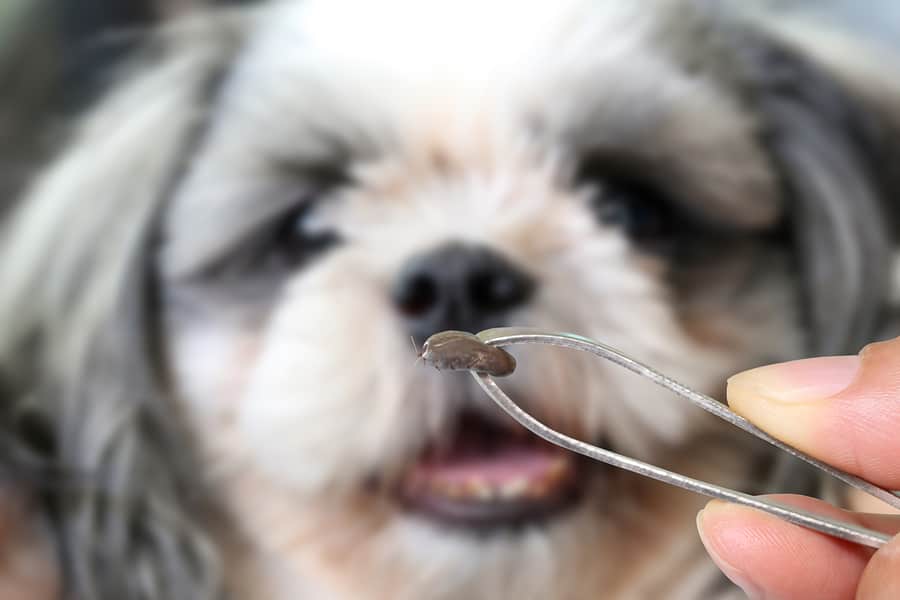
The weather is warming up, many of us are starting to spend time outside with our friends, family, and pets. Enjoying the outdoors has its benefits but also the disadvantage of coming across nuisance pests! Two common spring pests that can be harmful to both humans and pets are ticks and fleas. These insects will typically latch onto us or our animals, making their way inside homes, bringing the risk of infestation.
Fleas
Fleas tend to be dark red or brown, with their size varying between ½” to 1/6” in length. Fleas have a flat body, two antennae, and six legs. These pests will bite both humans and pets such as dogs and cats. Fleas have the incredible ability to jump to great heights, sometimes up to eight feet high! Jumping allows them to hitchhike into homes while hidden in pet fur. Dogs and cats will often get infested with fleas through contact with other animals or spending time outdoors. Once fleas have latched onto an animal host, they tend to stay there and then will easily transfer over to furniture or other animals. Fleas can be a health risk as their saliva is known to cause anemia, dermatitis, and facilitate and transfer tapeworms.
Ticks
There are two categories when identifying ticks: soft ticks and hard ticks. The soft tick will feed on bats and birds while the hard tick will feed on humans, pets, and nuisance wildlife. People and animals are likely to encounter ticks during the warmer months. Ticks can pose several health threats to humans and animals as they can transmit serious diseases such as Lyme disease and “tick paralysis.” Some tick species, such as the American Dog Tick, prefer to attach and feed on domestic dogs, which in turn allows them to sneak into our homes. When ticks feed, they can grow up to four times in size when engorged with blood, making them much easier to spot.
Controlling fleas and ticks can sometimes feel like an impossible task, especially if you have animals. If you suspect that you have a flea and tick problem, consider calling your local professional pest company who can thoroughly inspect your entire property and provide you with a treatment and prevention plan.